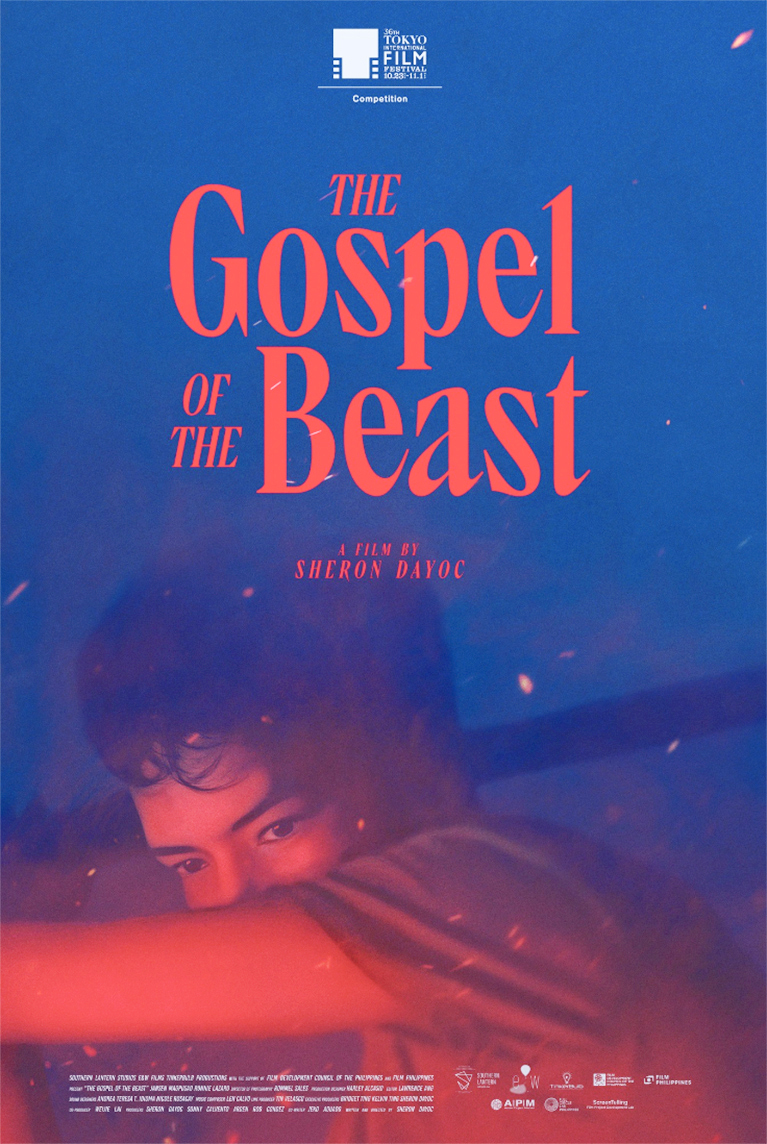Creating a monster in 'The Gospel of the Beast'
Sheron Dayoc makes a directorial comeback at TIFF
By Rica Arevalo
The Gospel of the Beast was one of the 15 films that competed at the 36th Tokyo International Film Festival (TIFF) last week.
Director Sheron Dayoc creates a violent coming-of-age film about Mateo (Jansen Magpusao) who is drawn to darkness after the death of a classmate and his allegiance with his Uncle Berto (Ronnie Lazaro), a crime syndicate leader who slaughters people (without any guilt).

Showing the dark side of the country and its people, Sheron tells us he was born in Zamboanga City. “I grew up in an environment where there is constant conflict and war,” he says. “Violence was a reality growing up but as I gained social and political consciousness, I thought I need to do something as a storyteller.”
The one hour and 25 minute-film follows Mateo as he escapes town, hoping to find a better life with his second “father” Berto. In a compound filled with brotherhood, Mateo finds the “family” he is longing for. He also has a pet dog who is loyal to him.
During the day, life is fun for everyone but at night, with each robbery and killing, Mateo’s innocence diminishes. He is becoming a beast, longing for bloody fights and violent retaliation.

The environment converts Mateo into a monster, yearning for violence. “The political and social environment forces some people to transform to be a beast because they only get to be empowered if they turn to a beast,” says Sheron.
In the last 10 years, there was a growth of violence in the Philippines. “Violence became pervasive,” states the 2017 Gawad Urian Best Direction awardee. “In cinema, it is extremely important that we keep on telling or discussing violence. If we do not have a discourse on violence, it might become normal, and people might become very passive, tolerate violence, and it becomes part of our cultural identity.”
It shouldn’t be that way, according to him. In the Philippines, there is a huge disparity between the rich and the poor. Sheron says, “The people who are in power, the people who are rich, defines what is wrong and what is right based on how they want it or perceive it.”
When Mateo tries to report Berto’s underground criminal activities to the police, he was not taken seriously and was left behind.

The 42-year-old filmmaker handpicked Jansen, known as the lead actor of John Denver Trending, because of his strong presence onscreen. He is now more mature and daring.
“This is my first time watching it on the big screen, it was a different experience,” says the 2018 Cinemalaya Best Actor. “Sobrang bigat niya sa pakiramdam (It’s a bit heavy).”
One scene that stood out is Mateo’s love for his pet dog, especially in the final scene. “It was very sad to abandon the feeling of kindness,” observes Jansen.
Mateo tied his dog to a tree. Will Mateo reclaim his soft, innocent side or will he flee from all this madness? “Finding justice in the Philippines only work for people in power, for the influential,” Sheron says. “If you come from the marginalized sector of our society, justice is subjective.”
Ronnie Lazaro adds a feather in his cap for his simultaneous portrayal of a cold syndicate leader and an adoring uncle. He can show his paternal instincts but also his cold, dark side to his mentee, Mateo. The power struggle within the brotherhood created conflicts that would keep the audience up to their toes, waiting for the next violent retaliation.
Testosterone-filled aggression plus suspense hostility is the core of The Gospel of the Beast.